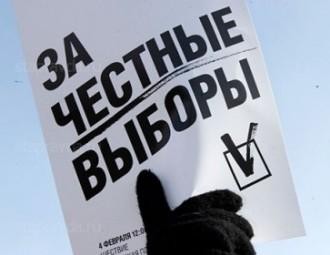Opinion: Belarus wants to make elections more transparent for observers and safer for opposition

The Belarusan authorities expect to avoid excessive brutality against the opposition, hoping that the international observers would recognise some progress in the election process.
The Belarusan authorities said the election process would be more transparent for the international observers as they hoped the latter would recognise some progress in the electoral process. With this in mind, the authorities are unlikely to use brute force against their opponents as in December 2010, which however does not mean they would not use ad hoc repressions in order to preserve the overall ‘stability’ in the background of the campaign. In addition, the authorities are unlikely to allow the sharpest critics of Lukashenka to become presidential candidates, in particular, if the level of tension in society elevates to a critical point.
In an interview with the ONT TV Channel, Central Election Commission Head Lidzia Jarmoshyna said that the initiative to hold the presidential elections on October 11thbelonged to her. She also said the main reason why the elections date had been shifted to an earlier date was due to her concern over voters and international observers: "...the situation, so to speak, has changed so as the opinion. And since it all fits in the same timeframe, there is no question of early elections. It was therefore decided that mid-October would be the most favourable time, less depressing; more pleasant for the international observers to visit the country from the weather viewpoint. November is the time of autumn blues, chronic diseases”.
It is worth noting that President Lukashenka has repeatedly stated that the elections will be conducted in accordance with the electoral calendar. He does not want any deviations from the pre-announced schedule to have any negative impact on his ratings or voters’ economic expectations. Previously, the CEC head said the most likely date for the elections was November 15th, however, in mid-June she proposed an earlier date – October 11th. The Parliament will consider the matter at its next session on June 30th.
Meanwhile, the international observers are unlikely to care about the ‘weather’ during the elections. The most logical explanation for shifting the elections date could be that the authorities wanted to leave room for holding the second round of elections. The Belarusan leadership must have some grounds to anticipate a positive assessment of elections by the international observers and some progress in the organisation of the electoral process. CEC Chairman Jarmoshyna said that Belarus would invite observers from the CIS, OSCE and PACE. Moreover, she also said that there would be no restrictions on the number of observers. In addition, President Lukashenka at the meeting with OSCE Secretary General Zannier and ODIHR Director Linke said the attitude towards the international observers would be the most loyal: "Please, think that we have invited all your representatives who you believe should come to observe the election process".
Simultaneously, the authorities have reserved the right to restrict participation of alternative candidates. Should the economic problems deteriorate thus increasing protest moods in society, the CEC may use formal grounds not to register the harshest critics of the president as candidates. In particular, Jarmoshyna said, "Those who will get on the ballots, quite possibly, will be more balanced."
The authorities’ attempt to demonstrate greater transparency of the election process creates certain difficulties for the opposition leaders – harsh critics of the regime who count on non-recognition of the elections by the international observers. In particular, from the "Coalition for Non-recognition" Anatoly Liabedzka, the United Civic Party leader and Sergey Kaliakin, ‘Fair World’ party Chairman, have already declared their intention to run for presidency.
The Belarusan authorities expect to avoid excessive brutality against the opposition, hoping that the international observers would recognise some progress in the election process. However, they might still use ad hoc repressions against most radical opposition candidates in order to preserve ‘stability’ of the socio-economic environment during the campaign.
-
03.01
-
07.10
-
22.09
-
17.08
-
12.08
-
30.09








































